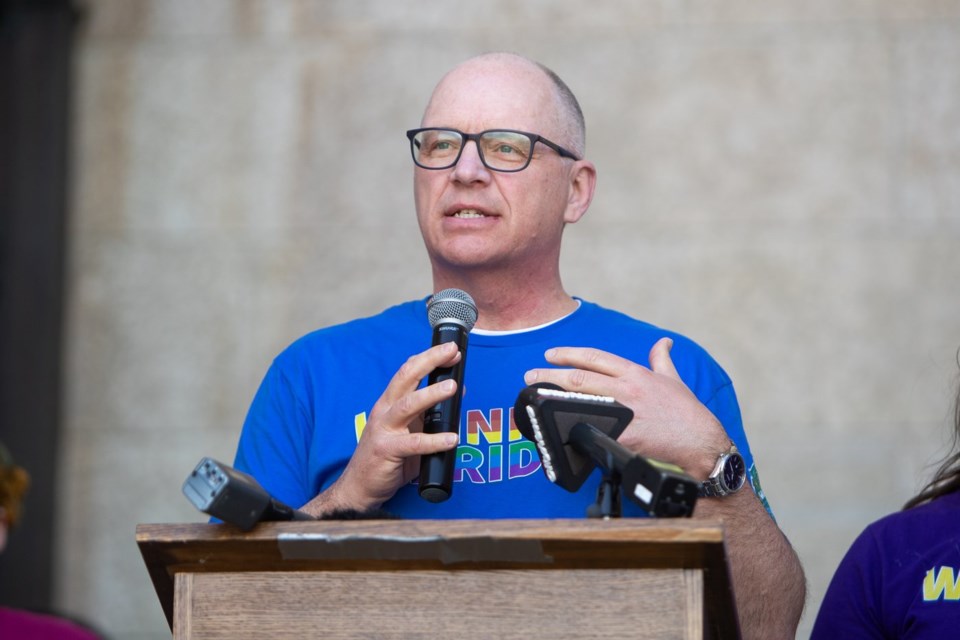WINNIPEG — Winnipeg city hall is gauging the public's appetite for potential new taxes on alcohol, online deliveries, vehicle registration and other items.
Faced with an ongoing funding squeeze, the city says it needs either more money from the province or new sources of revenue if it is to maintain services.
"It's no secret that Winnipeg, like every other city in the country, is dealing with financial challenges," Mayor Scott Gillingham said in an interview Thursday.
"The City of Winnipeg needs more revenue. I've been open and clear about that consistently. We have a growing city with increased demands and we need to be able to fund those services."
The city, through a polling firm, is asking residents whether they would prefer to see Winnipeg get more money from the province, cut services, raise property taxes by more than 3.5 per cent or impose new municipal taxes. The last option would require approval from the Manitoba government.
Among the items floated for a possible new municipal tax are liquor, vehicle registration, items ordered online for delivery, vacant homes, commercial parking and land transfers with an exemption for first-time homebuyers.
"We are looking at various revenue options and trying to get a sense of what the public would think," Gillingham said.
"We need increased revenues. So whether that's through an increase of the provincial grants to the city of Winnipeg, whether that's the city raising our own-source revenues or a combination of either, I'm open to whatever that ultimately may be."
Minnesota recently introduced a flat 50-cent fee on many deliveries on items ordered online, although there are exceptions that include transactions under $100 and restaurant meals, the state's website says.
The former Progressive Conservative government froze municipal operating grants for several years before boosting them by an average of 28 per cent in 2023. The NDP government, after winning last year's election, has committed to annual increases of two per cent.
Civic leaders say that is still not enough. The Association of Manitoba Municipalities has asked for an automatic funding escalator that would boost grants in line with rising costs.
"We are facing increasing challenges right now to balance our budgets," Kathy Valentino, the association's interim president, said.
"With … inflation and everything costing more, it's costing more for municipalities to provide services that we need to provide to our taxpayers."
Any new municipal tax would require provincial approval, and some previous requests — including a call for a liquor tax in Thompson in 2007 — were rebuffed.
The province did not indicate Thursday whether it is willing to consider new municipal taxes.
"We have brought in new stability and predictability to municipalities across the province with our Budget 2024 increase," read a written statement from the office of Ian Bushie, minister of municipal and northern relations.
Gillingham said talks with the province about increased funding are ongoing and the province has indicated a willingness to look at a new funding model for municipalities.
"The conversations with the province continue to be good, positive dialogue. We have very open channels."
This report by The Canadian Press was first published Oct. 31, 2024
Steve Lambert, The Canadian Press

